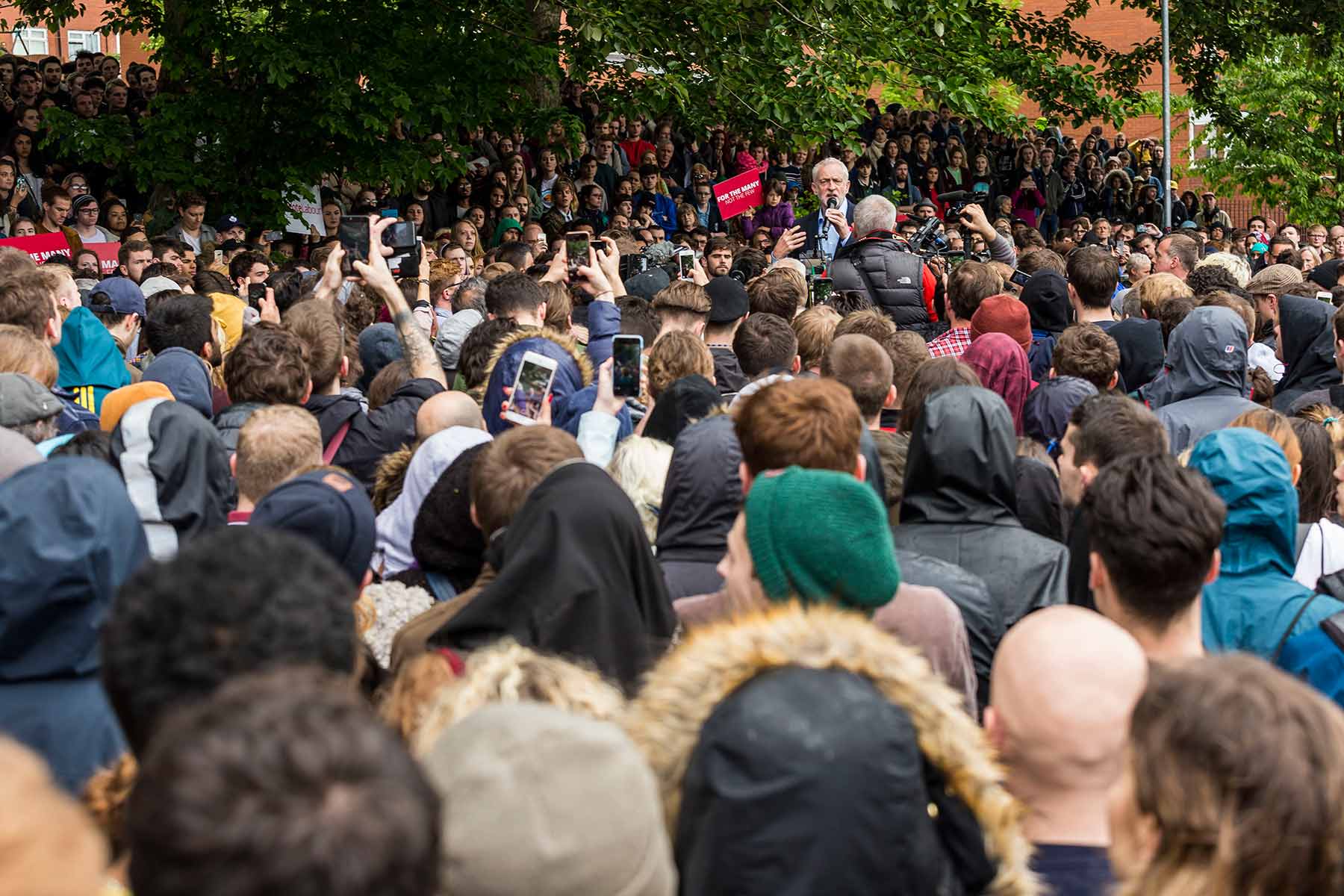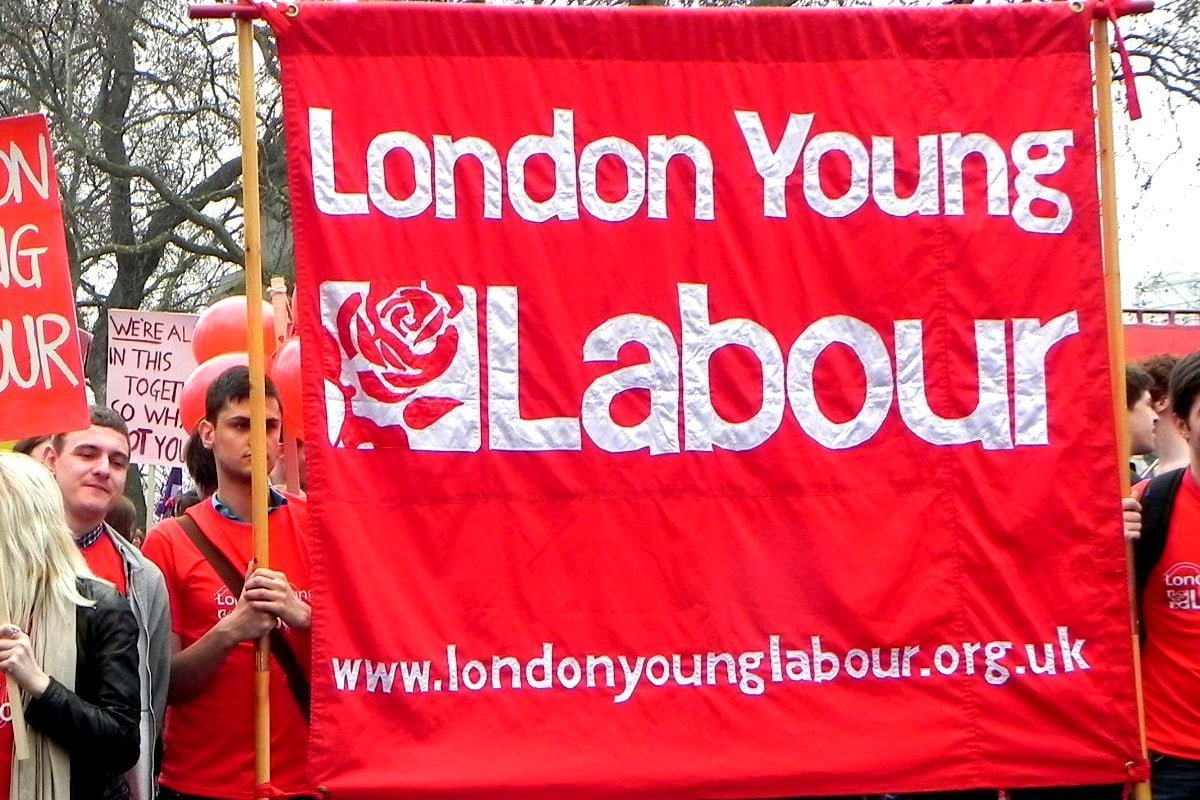The recent AGM of London Young Labour was a missed opportunity to discuss the way forward in the fight to kick out the Tories and bring in a socialist Labour government.
London Young Labour (LYL) held its Annual General Meeting (AGM) last weekend, on 31 March. But despite some very radical motions being submitted for discussion, by the end of the day much of the initial energy and enthusiasm had largely dissipated. No doubt many activists were left frustrated that there was not enough time to discuss important questions relating to the fight for a socialist Labour government.
A number of logistical problems before and during the event reduced attendance. The online registration shut down several times, with no explanation provided until days later. And the event was held in Harrow, on the outskirts of the city – not exactly an accessible location given the long travel from anywhere else in London. As a result, there were rows and rows on the signup sheets of people who had registered but didn’t turn up.
Opportunity missed
 The majority of the day was taken up by liberation caucuses for Under 19s, LGBT+, Trans, Disabled, BAME, and female comrades. Sadly, the content of these caucuses was largely apolitical: instead of discussing how to unite young people of all identities behind a socialist programme, the discussions largely went around in circles, with candidates standing for committee positions pledging to be “inclusive”.
The majority of the day was taken up by liberation caucuses for Under 19s, LGBT+, Trans, Disabled, BAME, and female comrades. Sadly, the content of these caucuses was largely apolitical: instead of discussing how to unite young people of all identities behind a socialist programme, the discussions largely went around in circles, with candidates standing for committee positions pledging to be “inclusive”.
Inclusivity, however, is not merely a passive attitude: there are objective, material barriers preventing young people from disadvantaged backgrounds from taking an active and leading role in political organising. The way to combat this is by drawing in all layers of the youth in the fight against capitalism by formulating concrete socialist demands to combat racism, sexism, transphobia, homophobia, ableism and all forms of oppression.
Due to various administrative and organisational errors, the mood of militancy in the room was deflated and the time for debating political motions was curtailed. Unfortunately, only one hour had been allocated to motions initially, and this was quickly whittled away. Even this would have been insufficient for the 35 motions on the agenda.
Of course, a lack of time is not uncommon for big conferences. This can be dealt with through a priority ballot. But this AGM’s priority ballot results were not even read out in full. Bewildered activists were no doubt disappointed when the already short session for motions was reduced to only 5-10 minutes. In the end, only one motion was debated and voted on, and this was the one submitted by the outgoing Chair of LYL.
LYL has for some years held a bit of a reputation for being a doorstep canvassing tool for the Labour Party. Several candidates standing for committee positions made reference to this, and promised to transform LYL into more than simply a campaigning forum by focusing on political education, should they be elected.
But the experience of the AGM, with very little political debate or discussion on offer, does not bode well. Political discussion is an essential lever of democracy in any political organisation – the main way through which the rank and file can actually shape the policy of the organisation. In the absence of this, LYL will remain a blunted tool in the project of campaigning for a socialist Labour government.
Youthquake
 Young people are perhaps the most radical layer of the Labour Party. Furthermore, nowhere do the failures of capitalism resonate with young people more clearly than in London. All the status quo has to offer us is mountains of debt, unaffordable and low-quality housing, precarious and low-paid employment, and the continuation of misery and oppression in society.
Young people are perhaps the most radical layer of the Labour Party. Furthermore, nowhere do the failures of capitalism resonate with young people more clearly than in London. All the status quo has to offer us is mountains of debt, unaffordable and low-quality housing, precarious and low-paid employment, and the continuation of misery and oppression in society.
It should be noted that the leading figures of LYL are all on the left wing of the party, backed by Momentum. This has not always been the case: previously LYL had been a bastion of the right wing; an entry point for political careerists.
The composition of the meeting as well, despite the various problems mentioned above, was overwhelmingly to the left of the party. And many contributions from the floor were very radical, as were the discussions taking place outside the venue. These included high-praise for overtly socialist motions such as reinstating the original Clause IV, condemning the coup in Venezuela, and calls for Labour councils to fight the cuts by setting illegal budgets.
It was clear from this political mood that more and more young people are becoming convinced of the need for a fundamental transformation of our society and economy – that is, of the need for socialism.
This was apparent when, in his closing remarks, shadow chancellor John McDonnell announced that Labour’s next general election manifesto would be even more radical than the 2017 one, which mobilised hundreds of thousands of youth and workers behind Jeremy Corbyn’s leadership. This was met with thunderous applause by the room.
We have the weakest government in history. Austerity is an ongoing disaster. And there is the looming threat of a climate catastrophe. For all these reasons, young people are mobilising to the banner of socialism. This energy needs to be harnessed by the labour movement and channelled into the fight for a socialist Labour government.
London Young Labour should be campaigning on the doorstep for this goal, calling for:
- Nationalisation of the banks and monopolies under democratic workers’ control.
- A socialist plan of production to save the NHS and grant free, cradle-to-grave education for everyone.
- Mandatory reselection for all elected LP representatives;
- Workers’ MPs on a worker’s wages;
- A militant fight against council cuts and to restore public services to pre-austerity levels.






